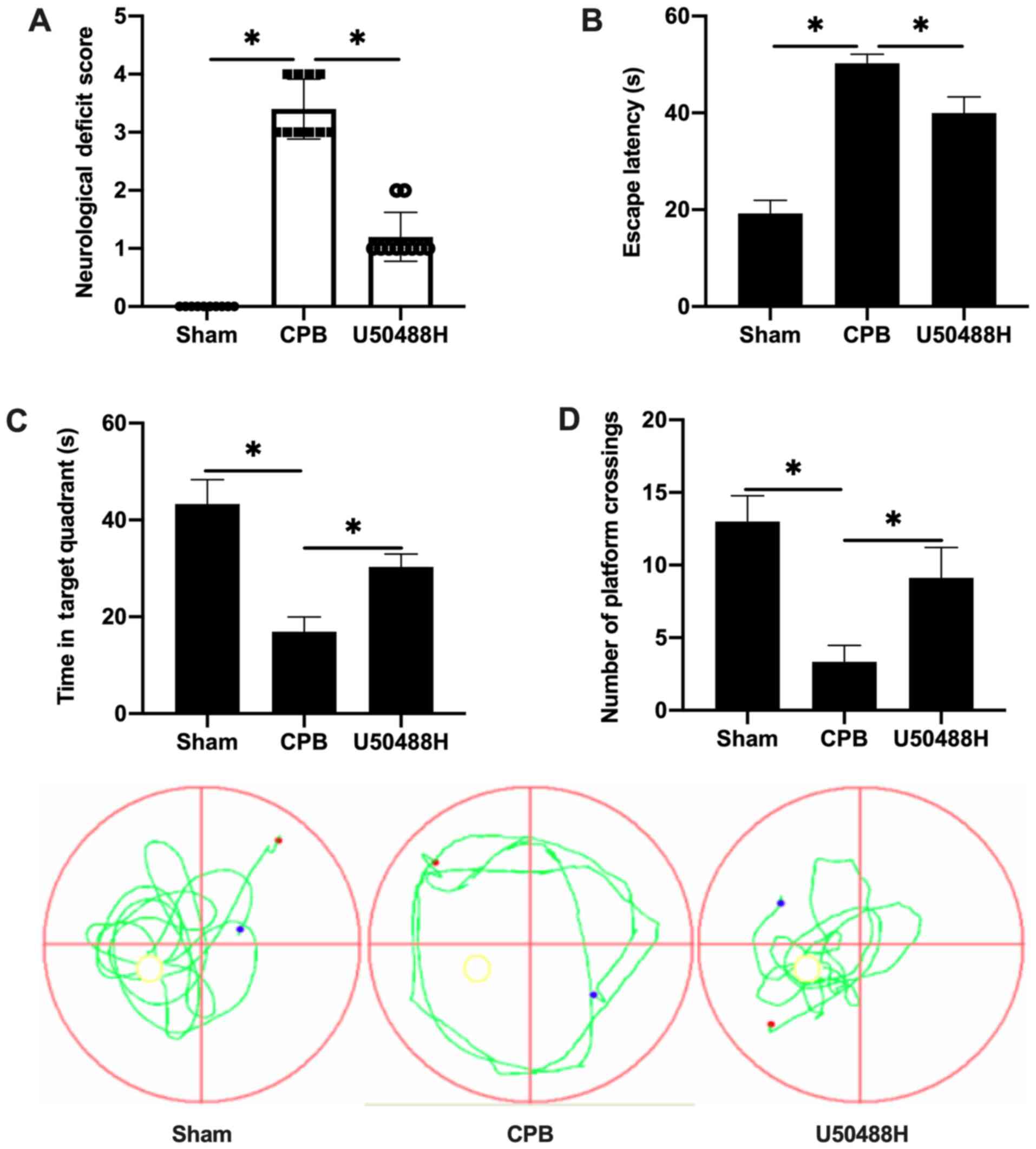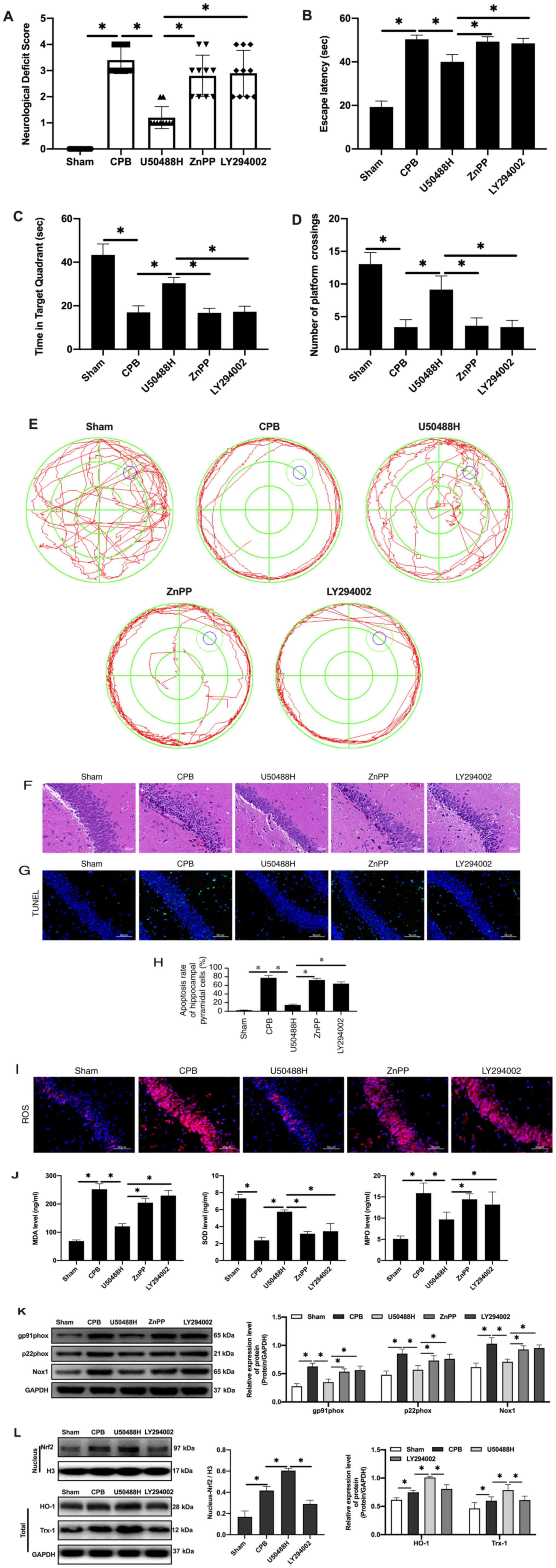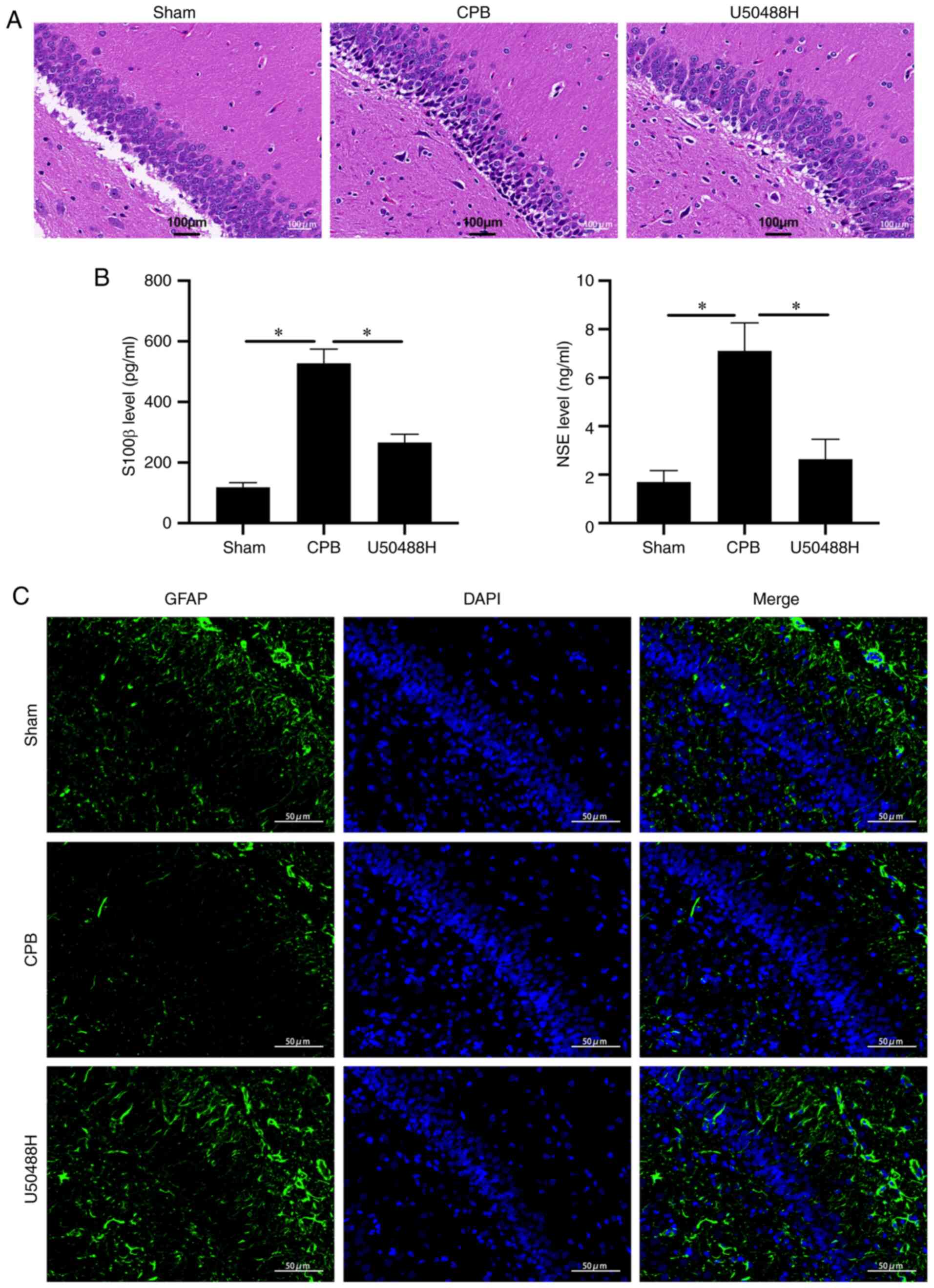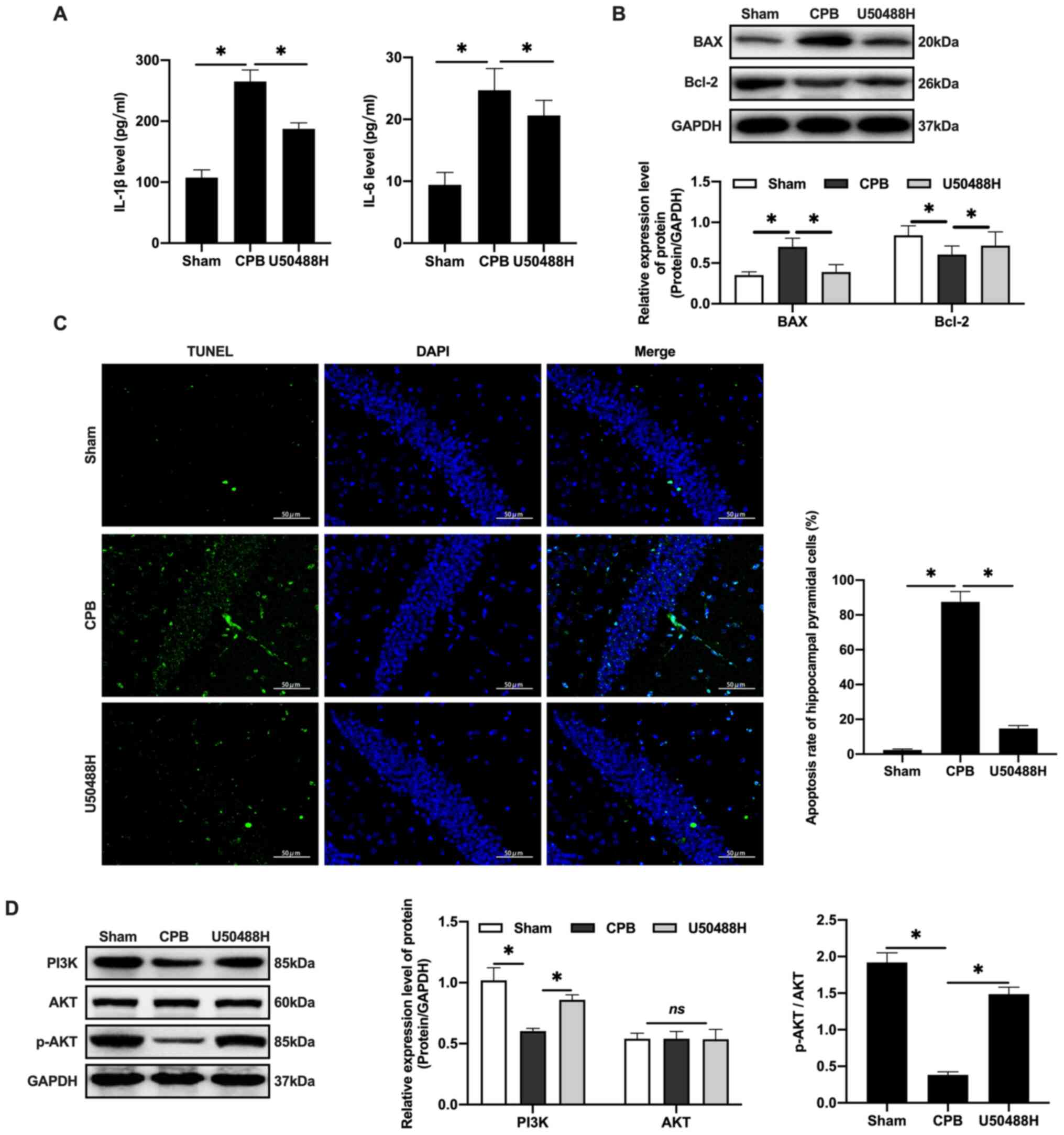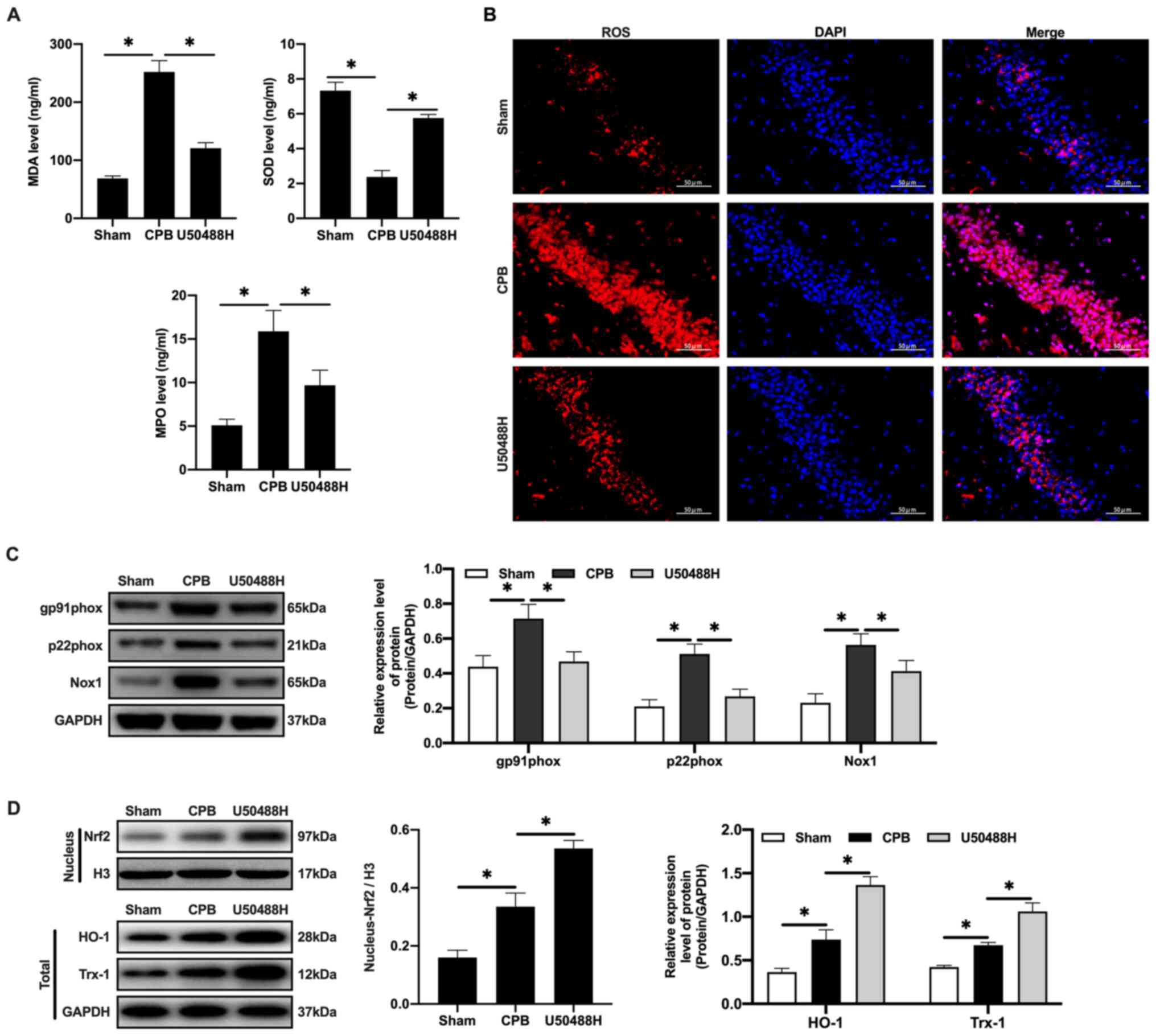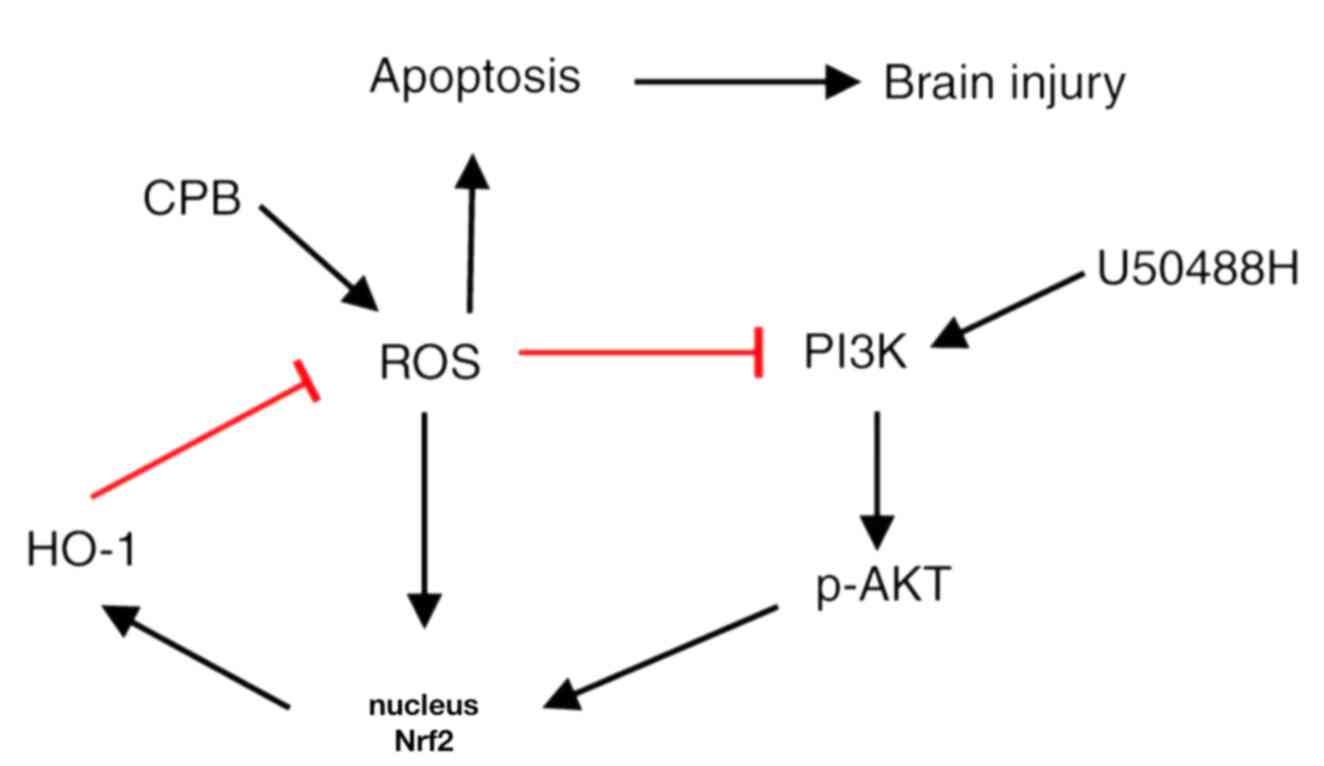|
1
|
Martin J and Cheng DC: Neurologic
complications after cardiac surgery: Stroke, Delirium,
Postoperative Cognitive Dysfunction, and Peripheral Neuropathy.
Evidence-Based Practice in Perioperative Cardiac Anesthesia and
Surgery. Springer; pp. 619–636. 2020
|
|
2
|
Keith JR, Puente AE, Malcolmson KL, Tartt
S, Coleman AE and Marks HF Jr: Assessing postoperative cognitive
change after cardiopulmonary bypass surgery. Neuropsychology.
16:411–421. 2002. View Article : Google Scholar : PubMed/NCBI
|
|
3
|
Kumpaitiene B, Svagzdiene M, Sirvinskas E,
Adomaitiene V, Petkus V, Zakelis R, Krakauskaite S, Chomskis R,
Ragauskas A and Benetis R: Cerebrovascular autoregulation
impairments during cardiac surgery with cardiopulmonary bypass are
related to postoperative cognitive deterioration: Prospective
observational study. Minerva Anestesiol. 85:594–603. 2019.
View Article : Google Scholar : PubMed/NCBI
|
|
4
|
Chen K, Sun Y, Dong W, Zhang T, Zhou N, Yu
W, Diao Y, Guo S and Tian Y: Activated A7nachr improves
postoperative cognitive dysfunction and intestinal injury induced
by cardiopulmonary bypass in rats: Inhibition of the
proinflammatory response through the Th17 immune response. Cell
Physiol Biochem. 46:1175–1188. 2018. View Article : Google Scholar : PubMed/NCBI
|
|
5
|
Kobayashi M, Li L, Iwamoto N,
Nakajima-Takagi Y, Kaneko H, Nakayama Y, Eguchi M, Wada Y, Kumagai
Y and Yamamoto M: The antioxidant defense system Keap1-Nrf2
comprises a multiple sensing mechanism for responding to a wide
range of chemical compounds. Mol Cell Biol. 29:493–502. 2009.
View Article : Google Scholar : PubMed/NCBI
|
|
6
|
Takaya K, Suzuki T, Motohashi H, Onodera
K, Satomi S, Kensler TW and Yamamoto M: Validation of the multiple
sensor mechanism of the Keap1-Nrf2 system. Free Radic Biol Med.
53:817–827. 2012. View Article : Google Scholar : PubMed/NCBI
|
|
7
|
Chen HH, Chen YT, Huang YW, Tsai HJ and
Kuo CC: 4-Ketopinoresinol, a novel naturally occurring ARE
activator, induces the Nrf2/HO-1 axis and protects against
oxidative stress-induced cell injury via activation of PI3K/AKT
signaling. Free Radic Biol Med. 52:1054–1066. 2012. View Article : Google Scholar : PubMed/NCBI
|
|
8
|
Netto MB, de Oliveira Junior AN, Goldim M,
Mathias K, Fileti ME, da Rosa N, Laurentino AO, de Farias BX, Costa
AB, Rezin GT, et al: Oxidative stress and mitochondrial dysfunction
contributes to postoperative cognitive dysfunction in elderly rats.
Brain Behav Immun. 73:661–669. 2018. View Article : Google Scholar : PubMed/NCBI
|
|
9
|
Narasimhan M, Patel D, Vedpathak D,
Rathinam M, Henderson G and Mahimainathan L: Identification of
novel microRNAs in post-transcriptional control of Nrf2 expression
and redox homeostasis in neuronal, SH-SY5Y cells. PLoS One.
7:e511112012. View Article : Google Scholar : PubMed/NCBI
|
|
10
|
Hong-Qiang H, Mang-Qiao S, Fen X,
Shan-Shan L, Hui-Juan C, Wu-Gang H, Wen-Jun Y and Zheng-Wu P: Sirt1
mediates improvement of isoflurane-induced memory impairment
following hyperbaric oxygen preconditioning in middle-aged mice.
Physiol Behav. 195:1–8. 2018. View Article : Google Scholar : PubMed/NCBI
|
|
11
|
Gozzelino R, Jeney V and Soares MP:
Mechanisms of cell protection by heme oxygenase-1. Annu Rev
Pharmacol Toxicol. 50:323–354. 2010. View Article : Google Scholar : PubMed/NCBI
|
|
12
|
Yu M, Wang J, Fang Q, Liu P, Chen S, Zhe
N, Lin X, Zhang Y, Zhao J and Zhou Z: High expression of heme
oxygenase-1 in target organs may attenuate acute graft-versus-host
disease through regulation of immune balance of TH17/Treg. Transpl
Immunol. 37:10–17. 2016. View Article : Google Scholar : PubMed/NCBI
|
|
13
|
Wu B, Song HL, Yang Y, Yin ML, Zhang BY,
Cao Y, Dong C and Shen ZY: Improvement of liver transplantation
outcome by heme oxygenase-1-transduced bone marrow mesenchymal stem
cells in rats. Stem Cells Int. 2016:92350732016. View Article : Google Scholar : PubMed/NCBI
|
|
14
|
Billings FT IV, Yu C, Byrne JG, Petracek
MR and Pretorius M: Heme oxygenase-1 and acute kidney injury
following cardiac surgery. Cardiorenal Med. 4:12–21. 2014.
View Article : Google Scholar : PubMed/NCBI
|
|
15
|
Lever JM, Boddu R, George JF and Agarwal
A: Heme oxygenase-1 in kidney health and disease. Antioxid Redox
Signal. 25:165–183. 2016. View Article : Google Scholar : PubMed/NCBI
|
|
16
|
Chang M, Xue J, Sharma V and Habtezion A:
Protective role of hemeoxygenase-1 in gastrointestinal diseases.
Cell Mol Life Sci. 72:1161–1173. 2015. View Article : Google Scholar : PubMed/NCBI
|
|
17
|
Hu L, Chen W, Tian F, Yuan C, Wang H and
Yue H: Neuroprotective role of fucoxanthin against cerebral
ischemic/reperfusion injury through activation of Nrf2/HO-1
signaling. Biomed Pharmacother. 106:1484–1489. 2018. View Article : Google Scholar : PubMed/NCBI
|
|
18
|
Balogun E, Hoque M, Gong P, Killeen E,
Green CJ, Foresti R, Alam J and Motterlini R: Curcumin activates
the haem oxygenase-1 gene via regulation of Nrf2 and the
antioxidant-responsive element. Biochem J. 371:887–895. 2003.
View Article : Google Scholar : PubMed/NCBI
|
|
19
|
Fang J, Wang H, Zhou J, Dai W, Zhu Y, Zhou
Y, Wang X and Zhou M: Baicalin provides neuroprotection in
traumatic brain injury mice model through Akt/Nrf2 pathway. Drug
Des Devel Ther. 12:2497–2508. 2018. View Article : Google Scholar : PubMed/NCBI
|
|
20
|
Wang P, Cao J, Liu N, Ma L, Zhou X, Zhang
H and Wang Y: Protective effects of edaravone in adult rats with
surgery and lipopolysaccharide administration-induced cognitive
function impairment. PLoS One. 11:e01537082016. View Article : Google Scholar : PubMed/NCBI
|
|
21
|
Meng X, Wang M, Sun G, Ye J, Zhou Y, Dong
X, Wang T, Lu S and Sun X: Attenuation of Aβ25-35-induced parallel
autophagic and apoptotic cell death by gypenoside XVII through the
estrogen receptor-dependent activation of Nrf2/ARE pathways.
Toxicol Appl Pharmacol. 279:63–75. 2014. View Article : Google Scholar : PubMed/NCBI
|
|
22
|
Zou Y, Hong B, Fan L, Zhou L, Liu Y, Wu Q,
Zhang X and Dong M: Protective effect of puerarin against
beta-amyloid-induced oxidative stress in neuronal cultures from rat
hippocampus: Involvement of the GSK-3β/Nrf2 signaling pathway. Free
Radic Res. 47:55–63. 2013. View Article : Google Scholar : PubMed/NCBI
|
|
23
|
Chunhua C, Chunhua X, Megumi S and Renyu
L: Kappa opioid receptor agonist and brain ischemia. Transl
Perioper Pain Med. 1:27–34. 2014.PubMed/NCBI
|
|
24
|
Charron C, Messier C and Plamondon H:
Neuroprotection and functional recovery conferred by administration
of kappa- and delta 1-opioid agonists in a rat model of global
ischemia. Physiol Behav. 93:502–511. 2008. View Article : Google Scholar : PubMed/NCBI
|
|
25
|
Sun Y, Song D, Wang M, Chen K and Zhang T:
α7 nicotinic acetylcholine receptor agonist attenuates the cerebral
injury in a rat model of cardiopulmonary bypass by activating the
Akt/GSK3β pathway. Mol Med Rep. 16:7979–7986. 2017. View Article : Google Scholar : PubMed/NCBI
|
|
26
|
Longa EZ, Weinstein PR, Carlson S and
Cummins R: Reversible middle cerebral artery occlusion without
craniectomy in rats. Stroke. 20:84–91. 1989. View Article : Google Scholar : PubMed/NCBI
|
|
27
|
Mackensen GB, Sato Y, Nellgård B, Pineda
J, Newman MF, Warner DS and Grocott HP: Cardiopulmonary bypass
induces neurologic and neurocognitive dysfunction in the rat.
Anesthesiology. 95:1485–1491. 2001. View Article : Google Scholar : PubMed/NCBI
|
|
28
|
Johnsson P, Lundqvist C, Lindgren A,
Ferencz I, Alling C and Ståhl E: Cerebral complications after
cardiac surgery assessed by S-100 and NSE levels in blood. J
Cardiothorac Vasc Anesth. 9:694–699. 1995. View Article : Google Scholar : PubMed/NCBI
|
|
29
|
Chen K, Li G, Geng F, Zhang Z, Li J, Yang
M, Dong L and Gao F: Berberine reduces ischemia/reperfusion-induced
myocardial apoptosis via activating AMPK and PI3K-Akt signaling in
diabetic rats. Apoptosis. 19:946–957. 2014. View Article : Google Scholar : PubMed/NCBI
|
|
30
|
Li X, Zhang J, Zhu X, Wang P, Wang X and
Li D: Progesterone reduces inflammation and apoptosis in neonatal
rats with hypoxic ischemic brain damage through the PI3K/Akt
pathway. Int J Clin Exp Med. 8:81972015.PubMed/NCBI
|
|
31
|
Pachori AS, Smith A, McDonald P, Zhang L,
Dzau VJ and Melo LG: Heme-oxygenase-1-induced protection against
hypoxia/reoxygenation is dependent on biliverdin reductase and its
interaction with PI3K/Akt pathway. J Mol Cell Cardiol. 43:580–592.
2007. View Article : Google Scholar : PubMed/NCBI
|
|
32
|
Zhang L, Qu Y, Tang J, Chen D, Fu X, Mao M
and Mu D: PI3K/Akt signaling pathway is required for
neuroprotection of thalidomide on hypoxic-ischemic cortical neurons
in vitro. Brain Res. 1357:157–165. 2010. View Article : Google Scholar : PubMed/NCBI
|
|
33
|
Trushina E and McMurray C: Oxidative
stress and mitochondrial dysfunction in neurodegenerative diseases.
Neuroscience. 145:1233–1248. 2007. View Article : Google Scholar : PubMed/NCBI
|
|
34
|
Schurr A: Lactate, glucose and energy
metabolism in the ischemic brain (Review). Int J Mol Med.
10:131–136. 2002.PubMed/NCBI
|
|
35
|
Arrica M and Bissonnette B: Therapeutic
hypothermia. Semin Cardiothorac Vasc Anesth. 11:6–15. 2007.
View Article : Google Scholar : PubMed/NCBI
|
|
36
|
Dai H, Wang P, Mao H, Mao X, Tan S and
Chen Z: Dynorphin activation of kappa opioid receptor protects
against epilepsy and seizure-induced brain injury via
PI3K/Akt/Nrf2/HO-1 pathway. Cell Cycle. 18:226–237. 2019.
View Article : Google Scholar : PubMed/NCBI
|
|
37
|
Kennedy DO and Haskell CF: Cerebral blood
flow and behavioural effects of caffeine in habitual and
non-habitual consumers of caffeine: A near infrared spectroscopy
study. Biol Psychol. 86:298–306. 2011. View Article : Google Scholar : PubMed/NCBI
|
|
38
|
Neema PK, Dharan BS, Singha SK, Sethuraman
M and Rathod RC: Entropy score, patent ductus arteriosus (PDA), and
cardiopulmonary bypass (CPB): Ligation of PDA on CPB can compromise
cerebral blood flow. Ann Card Anaesth. 14:203–205. 2011. View Article : Google Scholar : PubMed/NCBI
|
|
39
|
Gottesman RP, Grega MA, McKhann GM and
Selnes OA: Neurological complications of cardiac surgery: Stroke,
encephalopathy, and cognitive decline. Brain disorders in critical
illness: Mechanisms, diagnosis, and treatment. Camb Univ Press; pp.
410–418. 2011
|
|
40
|
Simonin F, Gavériaux-Ruff C, Befort K,
Matthes H, Lannes B, Micheletti G, Mattéi MG, Charron G, Bloch B
and Kieffer B: kappa-opioid receptor in humans: cDNA and genomic
cloning, chromosomal assignment, functional expression,
pharmacology, and expression pattern in the central nervous system.
Proc Natl Acad Sci USA. 92:7006–7010. 1995. View Article : Google Scholar : PubMed/NCBI
|
|
41
|
Silvia RC, Slizgi GR, Ludens JH and Tang
AH: Protection from ischemia-induced cerebral edema in the rat by
U-50488H, a kappa opioid receptor agonist. Brain Res. 403:52–57.
1987. View Article : Google Scholar : PubMed/NCBI
|
|
42
|
Cai Z and Ratka A: Opioid system and
Alzheimer's disease. Neuromolecular Med. 14:91–111. 2012.
View Article : Google Scholar : PubMed/NCBI
|
|
43
|
Rácz B and Halasy K: Kappa opioid receptor
is expressed by somatostatin- and neuropeptide Y-containing
interneurons in the rat hippocampus. Brain Res. 931:50–55. 2002.
View Article : Google Scholar : PubMed/NCBI
|
|
44
|
Li X, Sun Y, Jin Q, Song D and Diao Y:
Kappa opioid receptor agonists improve postoperative cognitive
dysfunction in rats via the JAK2/STAT3 signaling pathway. Int J Mol
Med. 44:1866–1876. 2019.PubMed/NCBI
|















